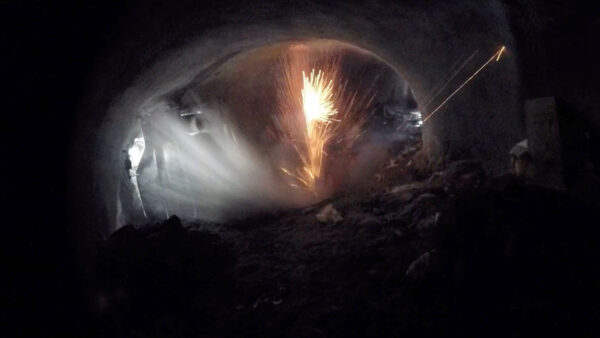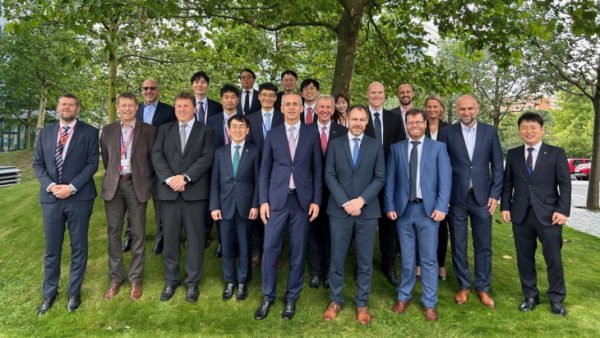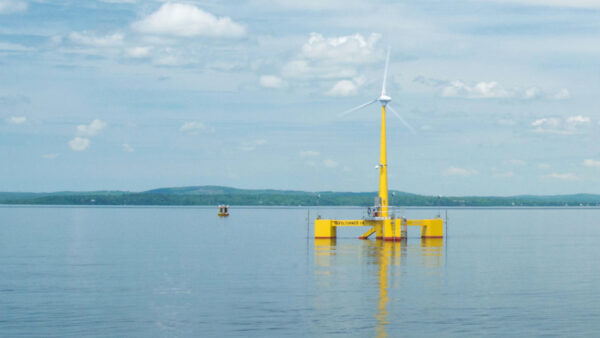Autonomous public transport got off to a bumpy start in Las Vegas this week when the city’s first self-driving shuttle bus was involved in a minor accident just two hours after starting its rounds.
No one was hurt in the 8-seater vehicle and the collision was blamed on the other – human – driver, but it was an inauspicious start to a year-long pilot held to probe the public’s wariness of self-driving cars.
Around two hours into its maiden voyage on Wednesday (8 November) the bus’s sensors registered an accident risk with an oncoming truck and did what it was programmed to do: stop.
Unfortunately, the truck did not stop and grazed the front fender of the bus.
Describing the incident, the city council noted that the human driver was cited by police, and pointed out that if the truck had been equipped with the same sensor equipment, the accident would not have happened.
The little bus was taken off the road for the day but the city said the 12-month trial would carry on in Las Vegas’s Innovation District.
Covering a 0.6-mile loop in the Fremont East area of downtown Las Vegas, the electric shuttle will offer free rides from three stops.
The city claims the shuttle, operated by transportation systems firm Keolis, is the country’s first autonomous shuttle to be fully integrated with “smart-city” infrastructure, communicating with traffic signals to improve safety and traffic flow.
Also this week, Google sister company Waymo said it would soon start a taxi service with autonomous vehicles in Phoenix, Arizona after eight years of development.
The Vegas shuttle is manufactured by NAVYA, and comes equipped with LiDAR technology, GPS, and cameras. The trial is sponsored by the local branch of the American Automobile Association (AAA).
“AAA believes autonomous technology has the potential to save lives and improve traffic safety,” said local president Tim Condon before the collision. “We believe our Las Vegas pilot will allow the public to experience this exciting technology for themselves and allow their voices to be heard as AAA studies how autonomous transportation can be safely deployed for public use.”
Three-quarters of US drivers report feeling afraid to ride in a self-driving car, the AAA found in a survey in March, and only 10% say they would feel safer sharing the roads with driverless vehicles.
Image: The little bus was taken off the road for the day but the city said the 12-month trial would carry on (City of Las Vegas)
Comments
Comments are closed.











It is inevitable that the first road collisions with automated vehicles will cause an uproar,
1. From people who are afraid of technology per se.
2. From those who want to blame anything but a human being.
3. From those who’s livelihood depends upon being able to drive a vehicle.
There are probably more categories I cannot even think of, but driverless will inevitably be and probably already is the safest way of sharing a road.
I enjoy driving, but there are times when I would like nothing more than being able to sit back and have a snooze (travelling always does this to me!) or read a book…… And, think about the savings in car insurance!